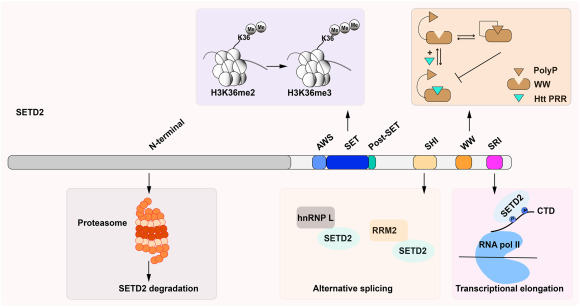
Emerging role of SETD2 in the development and function of immune cells


SET domain-containing 2 (SETD2) is a methyltransferase that catalyzes trimethylation of lysine 36 on H3 (H3K36me3) in mammals, an epigenetic mark associated with actively transcribed regions. SETD2 is implicated in multiple chromatin biological processes, such as alternative splicing, transcriptional regulation, DNA damage repair, and maintenance of genomic integrity. Extensive studies have demonstrated that SETD2-inactivating mutations and resultant dysregulation of these functions may result in tumorigenesis. However, the role of SETD2 in the development and function of immune cells receives relatively limited attention. In this review, we seek to summarize current knowledge of the biological function and underlying mechanisms of SETD2 and highlight its important role in immune cell biology. By influencing the biological processes of immune cells, SETD2 participates in the pathogenesis of immune-related diseases, including infection, cancers, autoimmune diseases, and inflammatory diseases. Finally, we discuss challenges and prospects for targeting SETD2 in immune cells to provide guidance for treating those diseases in clinical practice.
